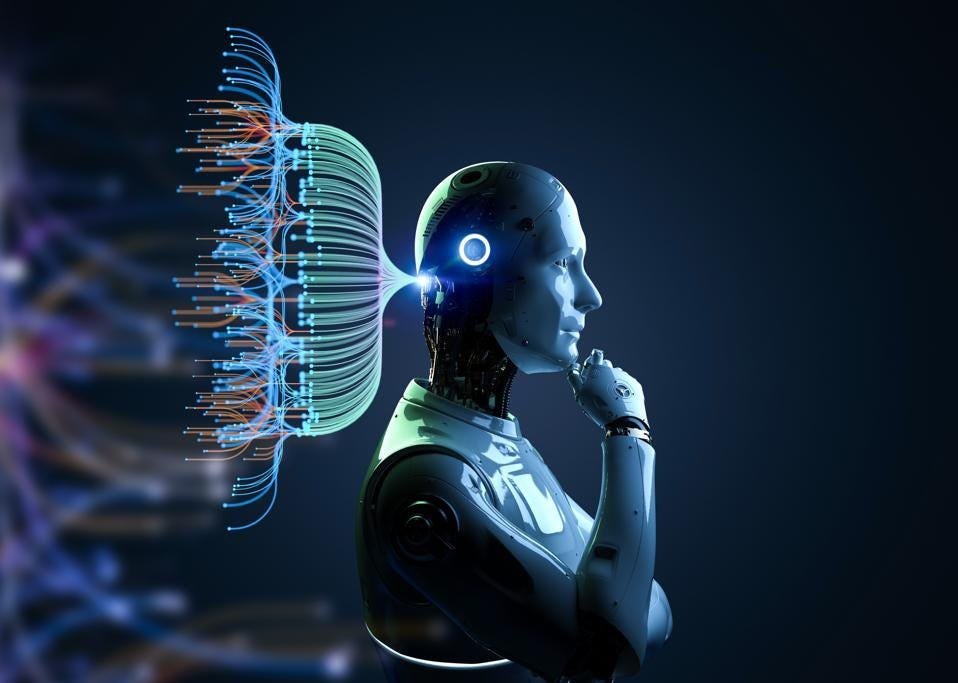Artificial intelligence (AI) is changing the way businesses operate and innovate, driving efficiency and productivity like never before. A key player in this transformation is the AI copilot—intelligent assistants that streamline workflows and enhance decision-making, becoming indispensable tools for many organizations.
What Is an AI Copilot?
AI copilots are intelligent systems designed to assist users by understanding and predicting their needs. Unlike traditional AI tools that follow pre-programmed instructions, AI copilots use advanced machine learning algorithms to provide intuitive support. These systems actively engage with users, offering real-time suggestions and insights.
By learning from user interactions, AI copilots adapt to individual workflows, making them highly effective in boosting productivity. For instance, Microsoft’s Copilot for Office 365 helps with document creation and management, while GitHub Copilot assists developers by suggesting code snippets.
The Benefits of AI Copilots
AI copilots are transforming workflows across various industries. Here are some key benefits:
- Automation of Repetitive Tasks: AI copilots handle routine activities like data entry and scheduling, freeing up professionals to focus on strategic work. For example, Microsoft’s AI Copilot can organize emails and calendar events automatically.
- Reduction in Manual Errors: By leveraging advanced AI capabilities, AI copilots ensure data accuracy and consistency, minimizing mistakes and enhancing operational efficiency.
- Enhanced Decision-Making: AI copilots analyze vast amounts of data to provide actionable insights and recommendations, helping businesses make more informed and strategic decisions.
- Cost Savings: By automating repetitive tasks and optimizing processes, AI copilots reduce the need for extensive manual labor, leading to significant cost savings.
- Improved Collaboration: AI copilots facilitate seamless communication and data sharing among team members, enhancing teamwork and productivity.
- Personalized User Experiences: These systems tailor interactions based on individual preferences and behaviors, increasing user satisfaction and loyalty.
- Scalability: AI copilots can quickly adapt to increasing workloads and evolving business needs, maintaining high productivity levels.
- Real-Time Data Analysis: By continuously monitoring and analyzing data, AI copilots help businesses make quick, informed decisions.
- Employee Satisfaction: Automating repetitive tasks allows employees to focus on more strategic and creative work, boosting job satisfaction and overall performance.
Types of AI Copilots
AI copilots come in various types, each designed to meet specific business needs:
- General-Purpose AI Copilots: Versatile tools that assist with a wide range of tasks. Examples include Apple’s Siri and Google Assistant, which help manage schedules, set reminders, and provide information.
- Industry-Specific AI Copilots: Tailored to meet the unique needs of different sectors. In healthcare, for example, AI copilots assist with diagnostic aids and patient management. In finance, they facilitate risk assessment and fraud detection.
- Function-Specific AI Copilots: Designed to address particular tasks within various business functions. In marketing, AI copilots optimize campaigns and segment customers. In sales, they provide lead scoring and customer relationship management.
Real-World Use Cases of AI Copilots
AI copilots are making significant impacts across various industries:
- Healthcare: Automating routine tasks like patient scheduling and billing, and assisting in clinical decision-making.
- Finance: Streamlining compliance and reporting tasks, and enhancing customer service through advanced chatbots.
- Manufacturing: Enhancing equipment monitoring and predictive maintenance, and optimizing supply chain management.
- Marketing and Sales: Personalizing customer interactions and analyzing market trends to create targeted campaigns.
- Human Resources: Improving recruitment processes and enhancing employee training and development.
How to Build an AI Copilot for Your Business
Creating an AI copilot involves several key steps:
- Define Objectives: Set clear, strategic goals for your AI copilot.
- Gather Data: Collect and prepare accurate, comprehensive data for training.
- Choose the Right Technology: Select AI technologies and frameworks that fit your business needs.
- Develop and Train: Build the AI model and train it with your data, refining it continuously.
- Integration and Testing: Integrate the AI copilot into existing systems and conduct thorough testing.
- Deployment and Monitoring: Deploy the AI copilot and monitor its performance, making necessary adjustments.
- Continuous Improvement: Regularly update the system with new data and refine the AI algorithms.
Partner with TechDotBit for AI Innovation
At TechDotBit, we are dedicated to helping businesses leverage the transformative potential of AI copilots. Our AI copilot services automate routine tasks, enhance decision-making, and drive innovation. We offer comprehensive support throughout the AI implementation journey, from initial consultation to deployment and beyond. Partner with us to revolutionize your business operations with AI copilots and achieve sustained success through innovative AI-powered solutions.
FAQs
How can AI copilots transform your business?
AI copilots enhance efficiency by automating routine tasks, analyzing data for better decision-making, and providing predictive insights. They streamline workflows, reduce operational costs, and enable employees to focus on strategic initiatives, driving innovation and growth.
How can AI copilots be integrated into existing systems?
AI copilots can be integrated through APIs and custom software solutions that ensure compatibility with existing infrastructure. This process involves minimal disruption, allowing seamless adoption and quick implementation.
What industries can benefit the most from AI copilots?
Industries such as healthcare, finance, manufacturing, retail, and customer service can significantly benefit from AI copilots. These sectors can leverage AI for enhanced data analysis, improved customer experiences, optimized supply chains, and better risk management.
Can AI copilots be classified as generative AI?
Yes, AI copilots can be powered by generative AI. Generative AI enables copilots to create content, analyze data, and provide intelligent suggestions, automating tasks, enhancing decision-making, and offering valuable insights.
Partner with TechDotBit to transform your business with AI copilots and drive growth in your organization. Contact us to learn more.








